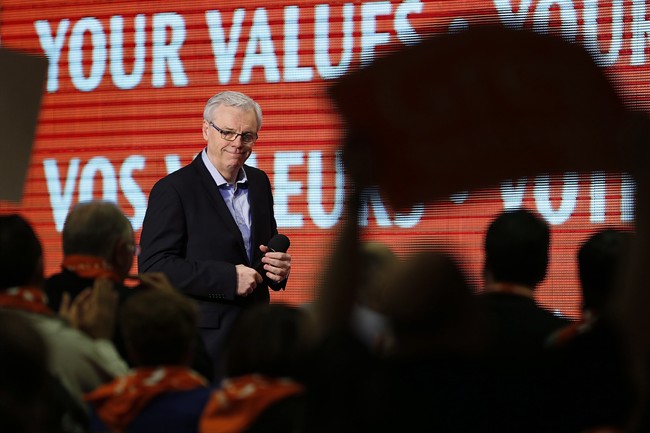WINNIPEG — A timeline of events in the leadership crisis of the Manitoba NDP:

READ MORE: Greg Selinger keeps his job as premier after NDP leadership convention
Sept. 23, 2011 — In a televised debate during the provincial election campaign, Progressive Conservative Leader Hugh McFadyen accuses Selinger of a secret plan to raise the provincial sales tax. Selinger calls the idea “nonsense,” “ridiculous” and “absurd.”
Oct. 4, 2011 — Selinger’s New Democrats are re-elected with the party’s largest-ever majority — 37 of 57 seats.
April 2012 — The NDP expands the provincial sales tax to cover more items, including tattoos, hair cuts and many types of insurance.
April 2013 — The government raises the sales tax to eight per cent from seven, citing a sluggish global economy, damage from flooding and needed infrastructure work.
October 2013 — With the NDP lagging behind the Opposition in opinion polls, Selinger shuffles his cabinet and changes his messaging. He says money raised by the tax increase will be used exclusively for core infrastructure projects such as highways and bridges.
September 2014 — At a caucus retreat in Brandon, some New Democrats tell Selinger he has to resign if the party is to survive the next election slated for April, 2016. Some cabinet ministers had earlier told him this privately. It is now discussed openly among the entire caucus. Selinger refuses to quit.
Oct. 27-28, 2014 — Senior party members and five of Selinger’s top cabinet ministers go public with a suggestion he resign.
Nov. 3, 2014 — Theresa Oswald and the other four ministers resign their portfolios and move to the backbenches. Selinger replaces them with less-experienced ministers.
Nov. 8, 2014 — Selinger calls on the NDP executive to solve the dispute by holding a leadership contest at the party’s annual convention in March. He announces he will stay on as premier during the race.
Dec. 18, 2014 — Oswald officially enters the leadership race.
Dec. 22, 2014 — Steve Ashton enters the contest.
Dec. 26, 2014 — An opinion poll by Probe Research suggests NDP support has hit a record low — 26 per cent among decided voters compared with 48 per cent for the Progressive Conservatives.
March 8, 2015 — Selinger wins leadership vote by 33 votes on the second ballot over Oswald.



Comments